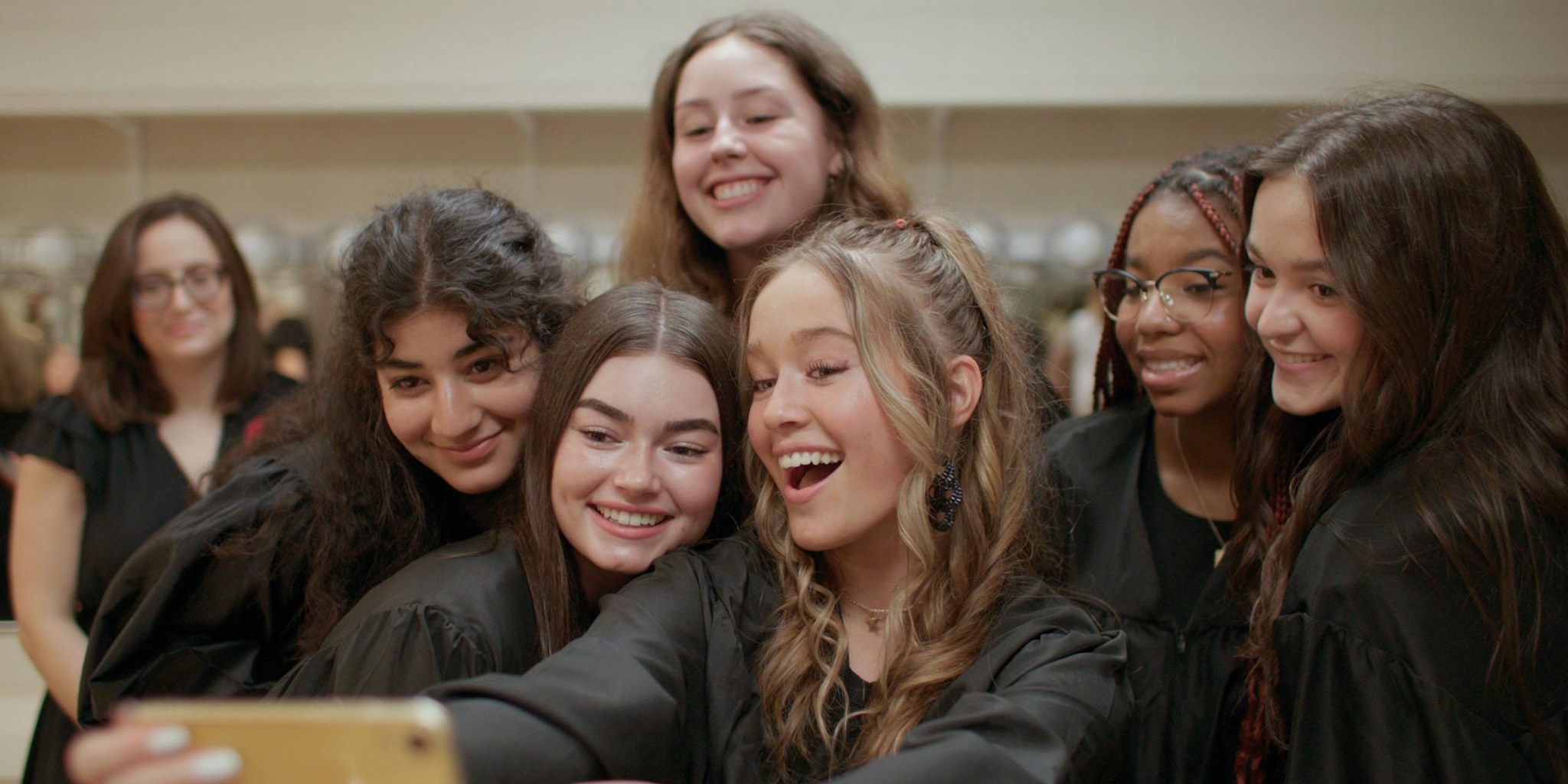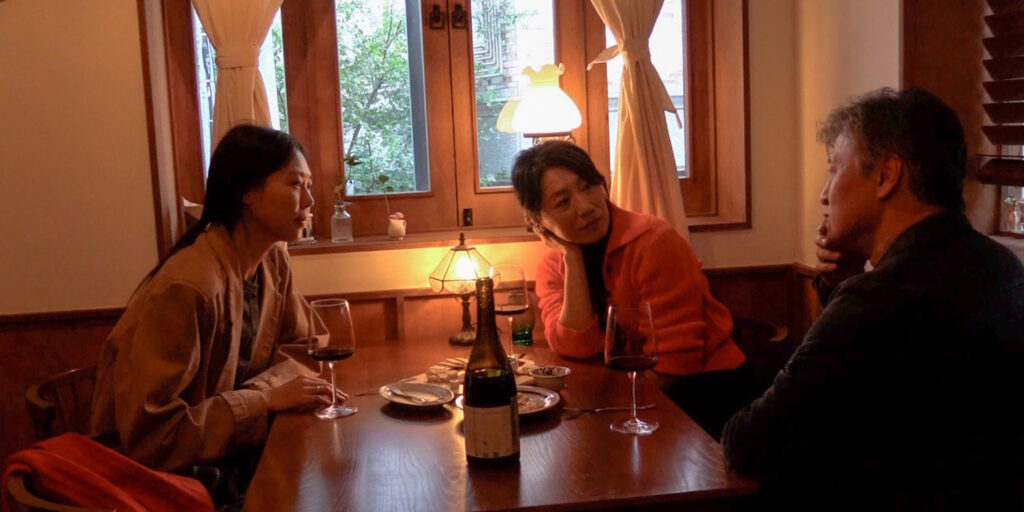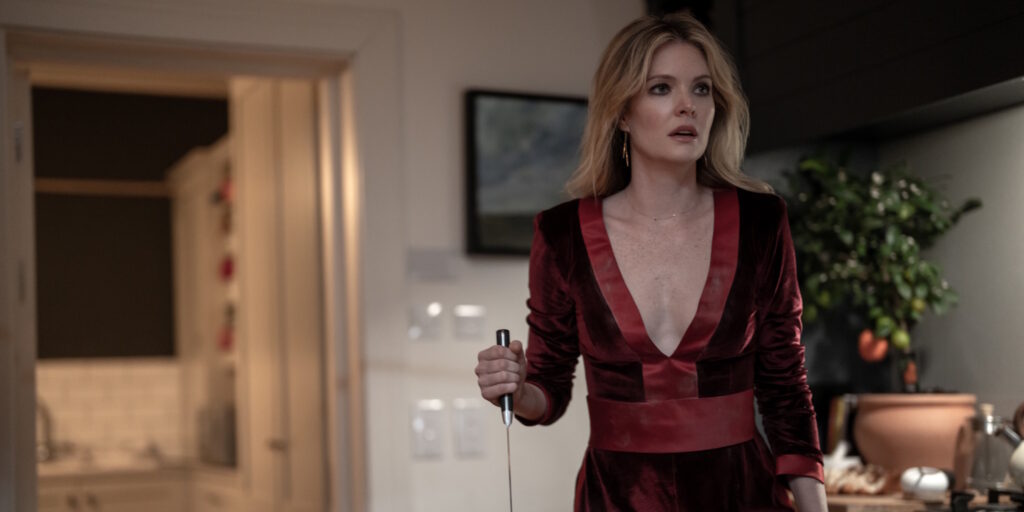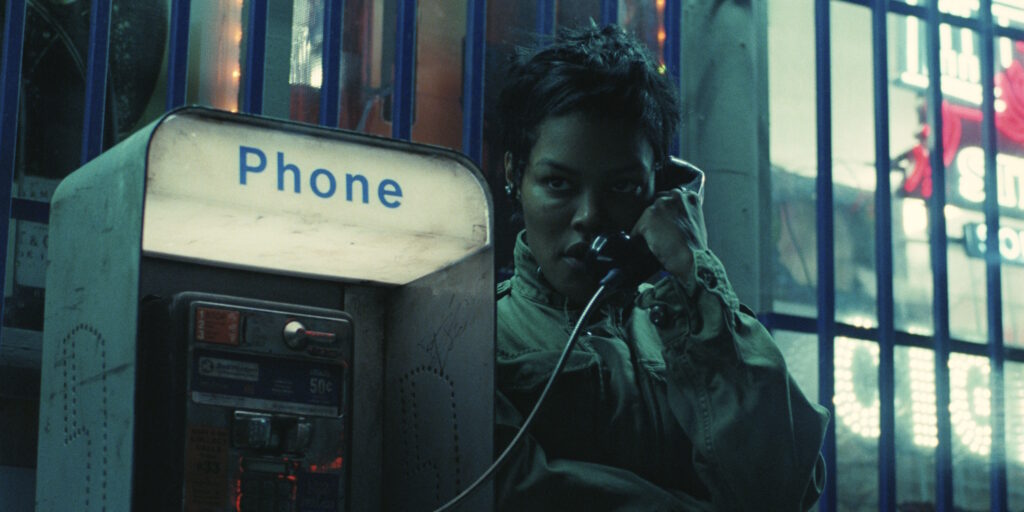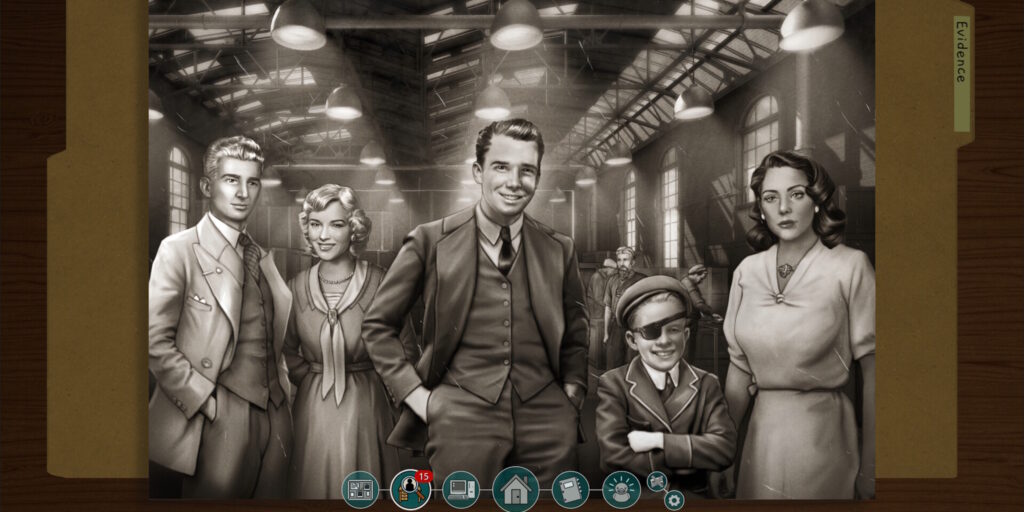Following its award-winning 2020 run, it makes perfect sense that Jesse Moss and Amanda McBaine’s documentary Boys State would receive the sequel treatment. Rather than follow up with another iteration of the week-long Boys State summer-camp program run by the American Legion — perhaps shifting to a different state’s program after the first film’s focus on Texas — Moss and McBaine flip the script and examine how the other half works. Namely, the American Legion Auxiliary Girls State program, which is held on the same campus as Boys State in a smattering of locations nationwide, including the doc’s setting of St. Charles, Mo.
Like the Boys State program, Girls State tasks its participants — a gaggle of high-school juniors traveling from all corners of the Show-Me State — with building a mock government from the ground up. Working from scratch, Girls State representatives can run for just about any position they can propose: from local officials all the way up to governor and even the Supreme Court. Instead of being split along the Democrat/Republican axis, the program divides the girls into Nationalists and Federalists and asks them to determine their own party platform from there.
Once that basic premise is established, Girls State charts a similar course to its predecessor. Audiences follow along with a handful of standouts throughout the year’s events, tracking their thoughts and opinions on both their fellow students and the program at large. We meet Toshi, an attorney-general hopeful who knows what she’s up against as one of few Black students among a majority of white rural Missourians. There’s Emily, a South County conservative who hopes to win the governorship by playing the bipartisan game. Also competing for the same top spot is Cecilia, a high-energy candidate who leans into her ideology’s feminist slant, and Faith, a former Girl Scout and self-proclaimed “Most Judgmental” badge-winner who is just beginning to break free from her small-town, right-wing upbringing and blaze her own trail.
Apart from the race for governor and various other executive and legislative positions, the documentary gives a lot of attention to the run for Supreme Court, a role for which Girls State does not require candidates to campaign. This alternative selection process — which appears to involve a decent amount of writing and closed-door peer review — is a real draw for a more soft-spoken but passionate group of participants, who seek to elicit change through the judicial branch over the executive branch. Here, we spend the most time with Nisha and Brooke, two fast friends with thoroughly unique outlooks on what it means to be truly represented by your government.
As the week progresses and tensions escalate, Moss and McBaine’s focus shifts to a subset of Girls State participants who have grown frustrated with the process’ politics: Not the American Legion Auxiliary-approved politics of the session, but rather the politics that exist between the two programs themselves. Why do the males of Boys State seemingly get a more serious experience than the preppy, peppy, girlboss-y agenda being presented to the females of Girls State? What’s with the greater funding, the bigger guests, and the more significant pomp that surrounds Boys State? Why can’t Girls State have what the other half has?
Broadly speaking, it’s this undercurrent that proves to be the most gripping. Polite bipartisan politics and courteous “bothsidesism” that refuses to press too hard on either side of the two-party system is tiresome enough in our daily life (to say nothing of the damage it does by spinning its tires and kicking up dirt over the major issues), and it’s all the more painful to see its seeds budding in the next generation of voters. Moss and McBaine’s keen eye on the pushback lobbied against the dated rules of the American Legion Auxiliary Girls State program — which recalls current efforts to dismantle the aging pillars of American government — makes for the most engaging, most inspiring footage in all of Girls State.
These questions mirror the ones swirling around the United States government at large, in particular the elephant in the room of this summer 2022 session: the looming Supreme Court decision on Dobbs v. Jackson Women’s Health Organization that threatens to overturn Roe v. Wade. Moss and McBaine are smart to illuminate this rebellious undertone of Girls State ’22, as it emulates the sorts of systemic interrogations happening on both a national and international level in the real-world political sphere. It gives Girls State a stronger sense of purpose outside of the context of its 2020 companion, helping it to stand alone as its own piece of documentary journalism rather than a mere gender-flipped follow-up.
Girls State is now streaming on AppleTV+.
